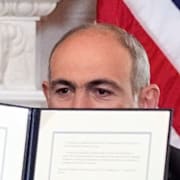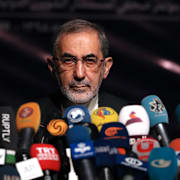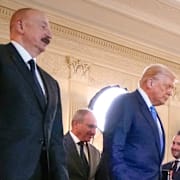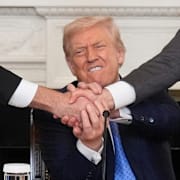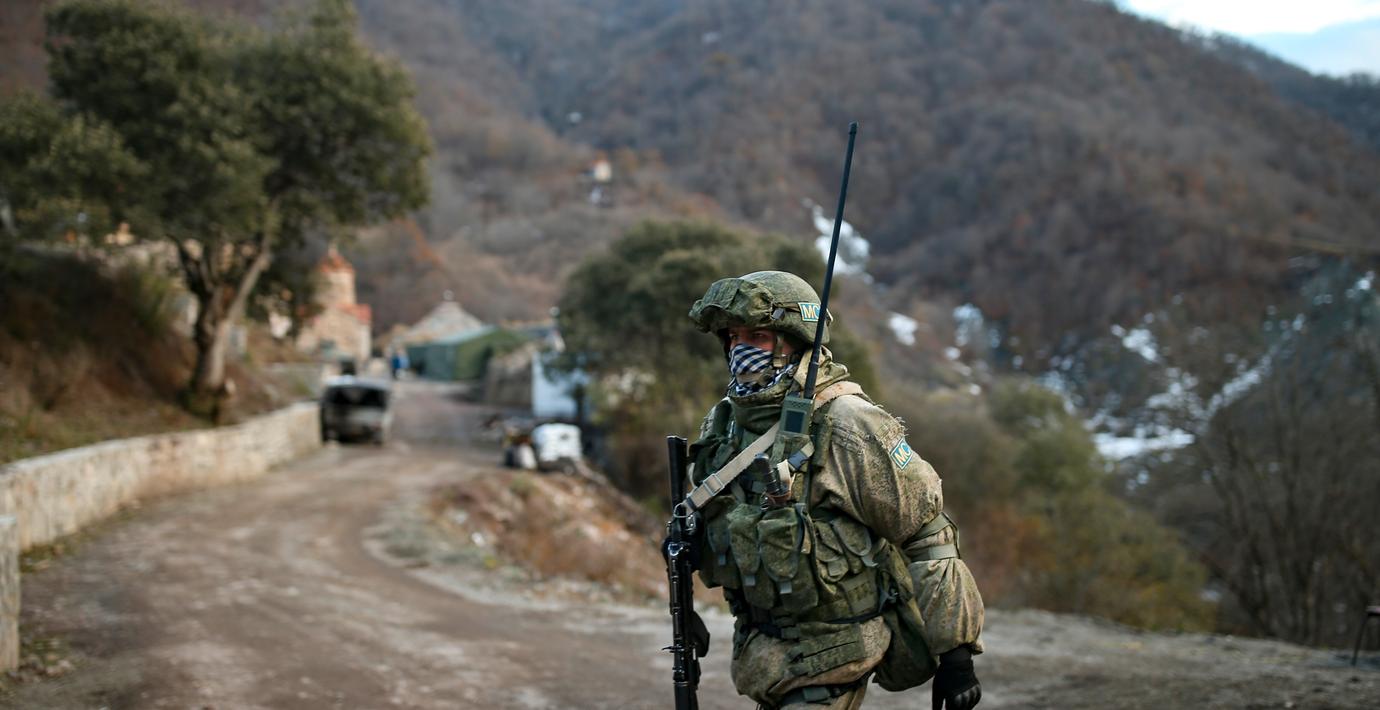
Ryssland: Situationen i regionen försämras
Ryssland anklagar Azerbajdzjan för att ha brutit mot vapenvilan i det omstridda området Nagorno-Karabach, där tre personer dödats på onsdagen i nya våldsamheter, enligt AFP.
Det ryska försvarsdepartementet uppger att situationen ”försämras”, rapporterar den statliga ryska nyhetsbyrån Interfax enligt Reuters.
Enligt departementet vidtar nu Ryssland, som har runt 2 000 fredsbevarande soldater i området, ”åtgärder för att stabilisera situationen” tillsammans med armeniska och azerbajdzjanska företrädare.
De armeniskstödda separatisterna i regionen har nyligen delvis mobiliserat sina styrkor.
bakgrund
Kriget i Nagorno-Karabach 2020
Wikipedia (en)
The 2020 Nagorno-Karabakh war was an armed conflict in the disputed region of Nagorno-Karabakh and the surrounding territories. The main combatants were Azerbaijan, with support from Turkey and foreign mercenary groups, on one side, and the self-proclaimed Republic of Artsakh and Armenia on the other. It was the latest escalation of an unresolved conflict over the region, which was included in Azerbaijan during the Soviet era as an autonomous region and internationally recognised as part of Azerbaijan but partially governed by Artsakh, a breakaway state with an Armenian ethnic majority.The fighting began on the morning of 27 September 2020 with an Azerbaijani offensive along the line of contact established in the aftermath of the First Nagorno-Karabakh War (1988–1994), with the primary goal of reclaiming the less mountainous districts of southern Nagorno-Karabakh, which were easier to take than the region's well-fortified interior. In response, Armenia and Artsakh introduced martial law and total mobilisation, while Azerbaijan introduced martial law, a curfew and partial mobilisation. Turkey provided military support to Azerbaijan, although the extent of this support has been disputed. Turkey's involvement is thought to have been an attempt to extend its sphere of influence, both by giving Azerbaijan the upper hand in the conflict and by marginalising Russia's influence over the region.The war was marked by the deployment of drones, sensors, long-range heavy artillery and missile strikes, as well as by state propaganda and the use of official social media accounts in online information warfare. In particular, Azerbaijan's widespread use of drones was seen as crucial in determining the conflict's outcome. Numerous countries and the United Nations strongly condemned the fighting and called on both sides to de-escalate tensions and resume meaningful negotiations. Three ceasefires brokered by Russia, France, and the United States failed to stop the conflict.Following the capture of Shusha, the second-largest city in Nagorno-Karabakh, a ceasefire agreement was signed between the President of Azerbaijan Ilham Aliyev, the Prime Minister of Armenia Nikol Pashinyan, and the President of Russia Vladimir Putin, ending all hostilities in the area from 10 November 2020. The President of Artsakh, Arayik Harutyunyan, also agreed to end hostilities. Under the agreement, the warring sides kept control of the areas they held within Nagorno-Karabakh at the time of the ceasefire, while Armenia returned the surrounding territories it had occupied since 1994 to Azerbaijan. Azerbaijan will also gain transport communication to its Nakhchivan exclave bordering Turkey and Iran. Approximately 2,000 Russian soldiers have been deployed as peacekeeping forces along the Lachin corridor connecting Armenia and Nagorno-Karabakh, with a mandate of at least five years. Following the end of the war, an unconfirmed number of Armenian prisoners of war were captive in Azerbaijan, with reports of mistreatment. Despite calls for their immediate release by the EU and international organisations, Azerbaijan has filed criminal charges against them. Armenia filed a case against Azerbaijan at the International Court of Justice in September 2021, with hearings taking place in October 2021 in The Hague.
Nagorno-Karabach
Omni är politiskt obundna och oberoende. Vi strävar efter att ge fler perspektiv på nyheterna. Har du frågor eller synpunkter kring vår rapportering? Kontakta redaktionen
